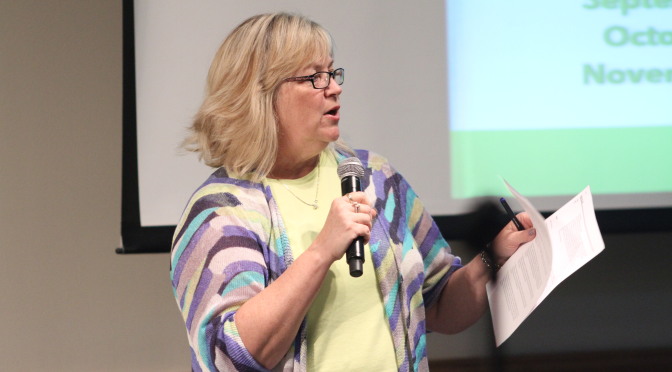
Tuition, other fees could increase
By: Bailey Hendricks, Assistant News Editor
Students could pay up to 5.4 percent more, overall, in mandatory fees — which encompass technology, athletics, auxiliary services and auxiliary services construction fees — in the coming fiscal year, according to information distributed at a Feb. 14 student open forum.
Mandatory fees include the technology fee and auxiliary fees, like construction and athletics.
During the meeting, Vice President for Administration and Finance Joe Oster said most of the fee increases move at the rate of inflation, about 2-4 percent annually, but for fiscal year 2017-2018, the auxiliary services construction fee would increase by 8.2 percent — or $88 — for full-time undergrads and 4.3 percent — $2 — for all part-time students.
“The $88 increase in the construction fee goes to pay for the debt service, the utilities and the maintenance,” Oster said. “This big increase is primarily attributed to Burdick coming next year and the start of the Union expansion and innovation design project.”
Oster said Burdick is expected to open Nov. 1.
The technology fee — which is slated to increase by 7.5 percent, or $14, for full-time students and 12.5 percent, or $1 per credit hour, for part-time graduate and undergraduate students — helps to maintain computers and other technology on campus.
The athletic fee helps pay for athletic scholarships and programming. The athletics fee could increase by 4.6 percent, or $40, for full-time students.
The auxiliary services fee helps pay for day-to-day services such as recreational sports and expanded staffing for the recreation center. Planned auxiliary service fee increases are under 4 percent for all affected students, while mandatory Student Government Association fees are not expected to increase at all. Possible tuition increases range from 2 to 5 percent for all undergraduate students, dependent on in-state, out-of-state or regional designation.
“Tuition pays for your faculty, your classrooms – the whole operation of the academic enterprise of the building…. The state supplements the tuition to pay for all those things that run the academic enterprise,” Vice President for Student Affairs Deb Moriarty said. “The auxiliary [fees] pay for things that aren’t must-haves on the campus.… They’re the things that make campus have life beyond the classroom.”
Non-mandatory fees include optional expenses such as meal plans, on-campus housing fees, and parking fees, and these funds help to cover operating costs of residence halls, maintenance and utilities.
On-campus housing costs will increase by 3 percent for Douglass House and Barton House but 3.5 percent for all other on-campus residences — aside from Carroll and Marshall halls, which will not see a cost increase.
Moriarity said that Carroll and Marshall halls won’t see an increase because of their already comparatively high price point.
The parking fee could see a $9 increase to the annual permit option and a $5 increase to the semester permit. Meal plans saw a proposed a 3.6 to 3.9 percent increase, depending on what any plan includes, according to the University materials.
Before fee increases can be enacted, proposals must be approved by multiple University bodies before being passed on to the University System of Maryland Board of Regents for final approval.
Sam Shelton contributed to this story.

